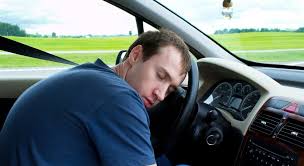
By Mimi Coffey
Ethanol is a central nervous system depressant. As one ingests more, the body is subject to more central nervous system depressant effects up to and including death. One of the well-known side effects of the ingestion of alcohol is sleepiness. However, an issue in a DWI case is the ability to scientifically distinguish between sleep deprivation and intoxication. Sleep deprivation brings about changes in physical and cognitive behaviors which are very similar to alcohol impairment including disorientation, slurred speech, and the inability to control the body and perform simple tasks.[1] Although they are frequently used interchangeably, the terms fatigue and sleepiness are vastly different. One study makes the distinctions:
Fatigue is a more complex phenomenon that may be defined as the decreased capability of doing physical or mental work, or the subjective state in which one can no longer perform a task effectively.[2] Sleepiness has a more specific meaning than fatigue, relating to reduced alertness as a result of increased pressure to fall asleep… It is associated with decrements in
vigilance, reaction time, memory, psychomotor coordination, information processing, and decision making.[3]
Studies have shown that a sleep deprived individual can exhibit a lack of coordination, memory impairment, personality change, irritability, blurring of vision, unsteadiness and transient confusion.[4] Additionally, the emotions of a sleep deprived person can be negatively affected. A strong relationship has been found between sleep and the intensity of manic symptoms. [5] A study on male teenagers has proven a correlation between sleep deficiency and aggression[6]. Extensive lack of sleep (over a few days) has shown decreased emotional intelligence, deteriorated interpersonal skills, enhanced esoteric thinking and a tendency to become superstitious, as well as intense frustration and aggression.[7] An area of concern arises in the context of sleep deprivation prevalence, which exists even separate and distinct from alcohol use. It is estimated that 30-50% of all adults suffer from some form of sleep deprivation, which affects their thinking, ability to process information, and reaction time.[8]
In discerning the impact of sleep deprivation, it is important to understand that this phenomenon is not related to the last 24 hours of one’s day. It has been shown that getting six hours of sleep for ten days straight is the equivalent of a sleep deprived person who has not slept in 24 hours[9]. The key for the attorney is to delve deep into the facts and determine whether sleep deprivation issues are relevant and to what degree. Fatigue of 20-25 hours of sleeplessness impairs task performance comparable to a .10 alcohol concentration.[10] Another study focused on time of day and the body’s circadian rhythm revealing that between 10:00 pm and midnight, deficits from sleep equivocated to a BAC of .05%[11]
The Horizontal Gaze Nystagmus test has been proven to be very problematic according to the 2007 National Highway Traffic Safety Administration’s Robustness of The Horizontal Gaze Nystagmus Test Study. Their own data proves false positives for those not .08 or more. Dr. Karl Citek, an often-referenced government advocate of the HGN, testified under oath in a Daubert hearing of In re Seiler on February 13, 2014 that 50-60 % of normal sober individuals will exhibit end point nystagmus (HGN at maximum deviation).[12] He concedes that he has seen individuals demonstrate all six clues, as well as vertical, while under the .08 limit.[13] In that same hearing he testified that, in the study he conducted in 2011 involving sleep deprivation of at least 24 hours, there were no effects on the field sobriety tests[14]. One must carefully analyze this study and its source. He is referring to his Sleep Deprivation Does Not Mimic Alcohol Intoxication on Field Sobriety Testing study which had representatives of the Oregon State Police and Washington County (Oregon) Sheriff’s Office as two of its authors.
On the first page of his study, Citek concedes that “SD (sleep deprivation) has been shown to affect saccadic eye movements (the jerking looked for in the HGN). [15] His graph of endpoint nystagmus (HGN at maximum deviation) shows nearly 90% of sleep deprived individuals displaying these clues with less than .04 alcohol[16]. The study is flawed as only 1 out of 29 test subjects was over 34 years old (not representative of the DWI population) and none of the tests were conducted during typical DWI arrest times (past midnight into early morning where the one’s circadian rhythm is disrupted). Yet despite such a biased study, Citek’s statistical analysis showed that the One-Leg Stand count (cognitive reasoning) decreased with sleep deprivation.[17] Outside the HGN test, police officers frequently use “bloodshot eyes” to describe an intoxicated person. Yet this is a very common physical sign of fatigue. As a matter of fact, in Jack Stuster’s U.S. Department of Transportation, NHTSA Final Report, The Detection of DWI at BACs Below 0.10 (Sept. 1997), the NHTSA took the position:
“Finally, some cues were eliminated because they might be indicators more of social class than of alcohol impairment. … a flushed or red face and bloodshot eyes are open to subjective interpretation and could be due to allergies or caused by outdoor work.”[18]
One very good clue that an individual is sleep deprived as opposed to intoxicated would be the physical presence of bags under one’s eyes.
The existence of sleep deprivation in automobile crashes is all too common. One British study found that alcohol (in amounts equal to .08) produced impairment across the whole drive with respect to simulated steering performance, while on average the sleep deprivation subjects showed normal steering at the start of the drive with progressive deterioration.[19] As a result, it is very important that the defense lawyer closely dissect the driving at hand. Were there 911 calls at the start of the drive? If so, over what distances? Crashes are part and parcel to sleep deprivation as well as intoxication. A 2008 National Sleep Foundation survey found that more than 36% of participants reported falling asleep while driving at least once in the past year.[20] As a matter of fact, “drowsiness is the primary causal factor in 100,000 police-reported crashes each year, resulting in 76,000 injuries and 1,500 deaths.”[21]
The time of crashes also relates to the body’s circadian rhythm. Findings in one study show that the major time of crashes occurs during the night with a secondary peak at siesta time (3 pm).[22] It is worth noting that in New Mexico, there was an increase in the number and proportion of alcohol-related traffic crashes following the seven days after the change to and from daylight savings.[23] Even one of the founders of NHTSA’s standardized field sobriety testing program, H. Moskowitz, has conceded, “[c]onsidering that the majority of alcohol-related accidents occur at night, there is a need for increased examination on the role of fatigue, circadian cycles, and sleep loss.”[24] There is also a strong correlation between sleep apnea and the risk of having a traffic accident[25]
The bottom line is that lack of sleep produces many of the same effects associated with being drunk, including lack of coordination, judgment and reaction time. [26] It has been found that sleep of five hours a night for four consecutive days impairs performance to such a degree that traffic safety is affected. [27] With sleep deprivation becoming a highly researched topic and an area of concern for the NHTSA, it will come as no surprise if there is future a push for laws that directly criminalize sleep deprivation and traffic accidents. The complications will be in proof of sleep deprivation in individual cases, not the underlying problems which cause accidents. Regardless, the issues and rehabilitative concerns for addressing intoxication versus sleep deprivation are different in nature. It is the responsibility of the criminal defense attorney to familiarize one’s self with the sleeping patterns of every DWI case to see the applicability of such a defense.
The body of research out there exists mainly in the medical field. The characteristics of sleep deprivation and intoxication have been proven to overlap. It is not fair to allow a prosecutor, judge or jury to dismiss considerations of sleep deprivation where such considerations are relevant, and sometimes necessary, to one’s case. The field is a vast one, which involves considerations of individuals’ medical issues (is sleep apnea at play or other physical ailment which cause lack of sleep?), employment (is there shift work or sleep loss due to multiple jobs?), and unique sleep patterns at the time of the DWI occurrence (sleep deprivation effects can accumulate over days as reference above, not just a single 24-hour instance). Consulting experts may—and possibly should—include the relevant fact witnesses, such as one’s sleep disorder doctor or primary physician, in addition to sleep experts who are both published and in practice (both therapeutic and medical doctors). Finding the right solution for the sleep deprived DWI client should also involve counseling them to find healthy alternatives and medical solutions that can alleviate their sleep loss and prevent future occurrences.
________________________________________________________________________
[1] Carolyn Schur, DUI and the Effect of Sleepiness, 2 Counterpoint Journal (Aug. 7, 2019), https://www.counterpoint-journal.com/vol-2-iss-2-art-6—sleepiness.html.
[2] James M. Lyznicki, Sleepiness, Driving, and Motor Vehicle Crashes, 279 JAMA 1908, 1909 nn.14-15 (1998).
[3] Id. nn.11, 13.
[4] Michael E. Reid, Fatigue, 42 Mo. DUI Handbook § 5:3 n.18 (2017).
[5] Jolanta Orzel-Gryglewska, Consequences of Sleep Deprivation, 23 Int’l J. Occupational Med. and Envtl. Health 95, 97 n.17 (2010).
[6] Id. at 104.
[7] Id. at 104 nn.119-20.
[8] Reid, supra note 4, n.15.
[9] Clayton Kerbs, The Importance of Sleep, 87-APR J. Kan. B.A. 15, 16 n.8 (2018).
[10] Orzel-Gryglewska, supra note 5, at 107.
[11]A.M. Williamson, Moderate sleep deprivation produces impairments in cognitive and motor performance equivalent to legally prescribed levels of alcohol intoxication, 57 Occup. Environ. Med. 649, 654 nn.15-16 (2000).
[12] In re Seiler, page 21 (2014) (Transcript of Daubert Hearing: Karl Citek).
[13] Id. at 31.
[14] Id. at 4.
[15] Karl Citek, Sleep Deprivation Does Not Mimic Alcohol Intoxication on Field Sobriety Testing, 5 J. Fors. Sci. 1170 nn.41-42 (2011).
[16] Id. at 1176.
[17] Id. at 1173.
[18] Jack Stuster, The Detection of DWI at BACs Below 0.10, US Department of Transportation, page 14 (1997).
[19] M.A. Hack, Comparison of the effects of sleep deprivation, alcohol and obstructive sleep apnoea (OSA) on simulated steering performance, 95 Respiratory Med. 594, 600 (2001).
[20] George W. Ingham, Another Drink, Another Hour: Using Dram Shop Liability to Determine Employer Liability for Injuries Caused by Fatigued Commuting Employees, 17 Geo. Mason L. Rev. 565 n.3 (2010).
[21] Id. n.4.
[22] Allan I. Pack, Characteristics of Crashes Attributed to the Driver Having Fallen Asleep, 27 Acc. Anal. and Prev. 769, 771 (1995).
[23] E.J.D. Ogden, Effects of Alcohol and Other Drugs on Driver Performance, 5 Traffic Inj. Prev. 185, 190 (2004).
[24] Id. at 185.
[25] J. Teran-Santos, The Association Between Sleep Apnoea and the Risk of Traffic Accidents, 340 New Eng. J. Med. 847 (1999).
[26] P.A. Fransson, Effects of 24-hour and 36-hour sleep deprivation on smooth pursuit and saccadic eye movements, 18 J. Vestibular Res. 209 (2008).
[27] David Elmenhorst, Performance impairment during four days partial sleep deprivation compared with the acute effects of alcohol and hypoxia, 10 Sleep Med. 189 (2009).
When people look for a Top DWI Attorney or Best DWI Attorney, they look for experience, certification, and respect in the legal community. Mimi Coffey is a nationally-renowned trial attorney, board-certified in DWI by the NCDD. She has been practicing for over 24 years and is an author of multiple DWI Defense textbooks. She is also a national and state-wide lecturer on the law.
The Coffey Firm handles a wide variety of cases, including Unlawful Carrying Weapon (UCW), Assault (including family violence), Theft and Possession charges.
Mimi is also listed on several “top” directory listings such as DWI Lawyers for Wise County, DWI Lawyer Tarrant County, DWI Lawyer Dallas County, DWI Lawyer Collin County and DWI Lawyer Parker County. Mimi is a caring DWI Lawyer in DFW, She is also involved in the Texas Tech School of Law foundation and enjoys using the skills she has developed to give back to the community.


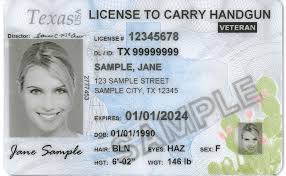 THIS IS AN IMPORTANT WARNING for those who currently have a
THIS IS AN IMPORTANT WARNING for those who currently have a 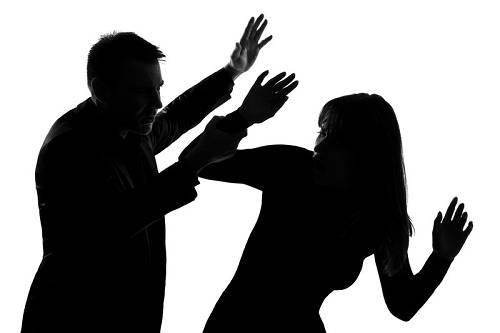
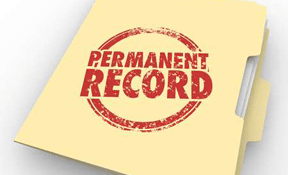
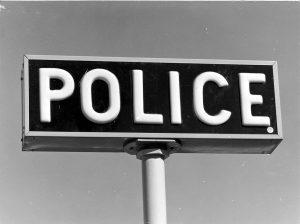 Many people arrested for DWI are not aware they they have the right to request
Many people arrested for DWI are not aware they they have the right to request  Unlawful Carrying Weapon and
Unlawful Carrying Weapon and 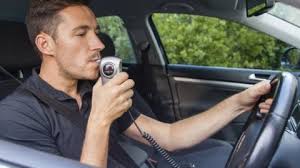 Hate having an interlock? Want to get it off?
Hate having an interlock? Want to get it off?


 Oh no! I Screwed Up My
Oh no! I Screwed Up My 
 Final Considerations
Final Considerations